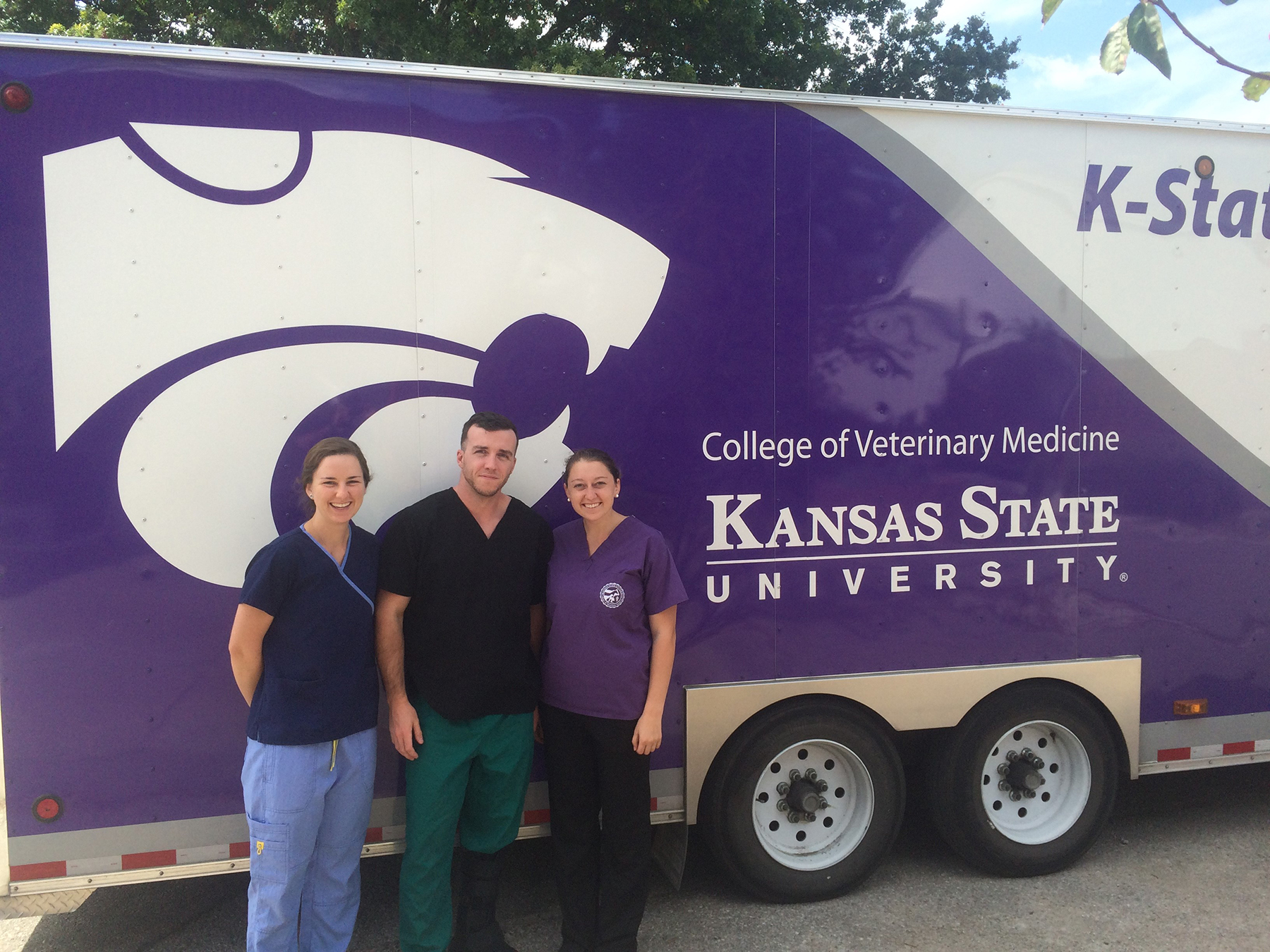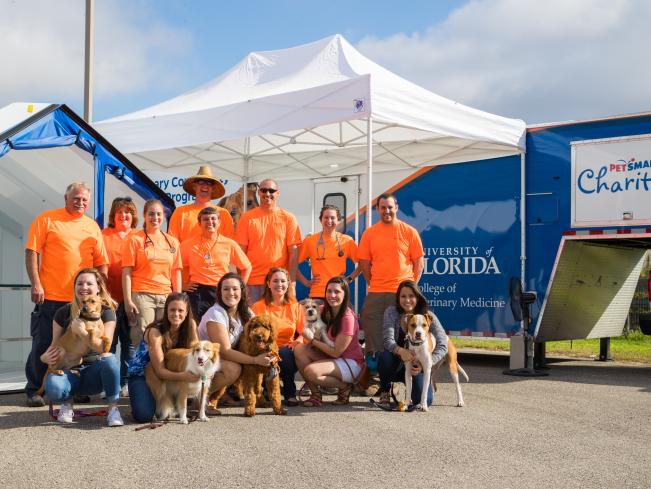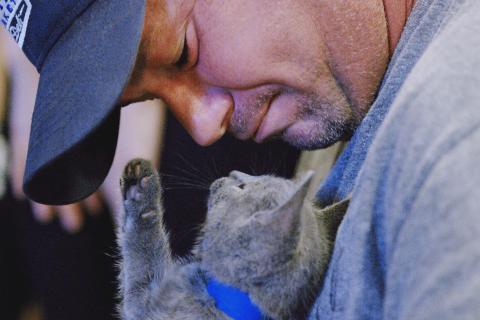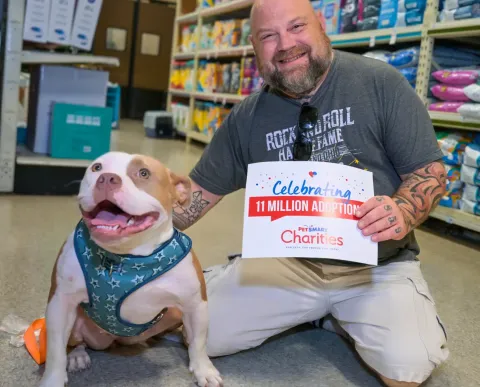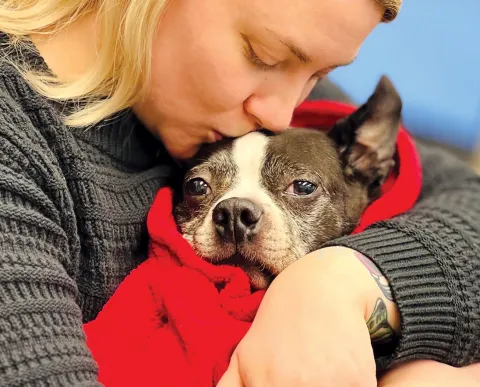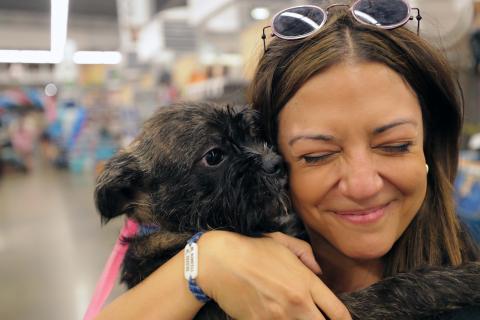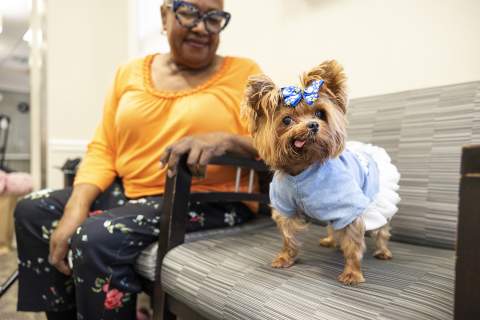The most visible part of the College of Veterinary Medicine's shelter medicine program is the 32-foot mobile surgery unit used for performing on-site, pre-adoption spay/neuter procedures and providing medical care to enhance the health and adoptability of shelter animals. The recent grant from PetSmart Charities will specifically help support operational costs in the shelter medicine program.
In 2014, the college received an initial grant for $200,000 to secure the mobile surgery unit. This year's grant will bring the total commitment to more than $400,000.
Since the program launched in April 2015, the mobile surgery unit has regularly visited area shelters within a two-hour radius of Manhattan. To date, the unit has made more than 540 trips to 16 partner organizations where 150 different fourth-year veterinary students have provided more than 10,000 spay/neuter procedures.
As members of a mobile surgery unit team, the students are exposed to each shelter's unique processes and challenges.
"There are many benefits for students who participate in our shelter medicine program," said Bonnie Rush, acting dean of the College of Veterinary Medicine. "We believe students will develop a strong appreciation for the magnitude of the homeless pet population and will be better prepared to volunteer and advocate for shelters in their own communities after graduation. We are very appreciative of the amazing commitment to animal health and shelter medicine education expressed through this grant from PetSmart Charities."
"The shelter medicine program has made great progress in providing services to underserved organizations in their community while also providing students with a unique learning opportunity to enhance their classroom experience,” said David Haworth, a veterinarian and president of PetSmart Charities. "By continuing to invest in the program at Kansas State University, we hope to inspire more veterinary students to investigate a career or volunteer opportunities within the field to help pets and people in need."
Veterinary students spend two weeks on the shelter medicine clinical rotation, and each day they help pack and load the mobile surgery unit with supplies. They use travel time to and from the participating shelters as class and lecture time to improve their knowledge of shelter medicine, procedures and the special aspects of working with unowned animals.


